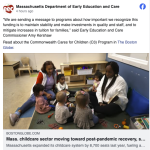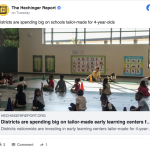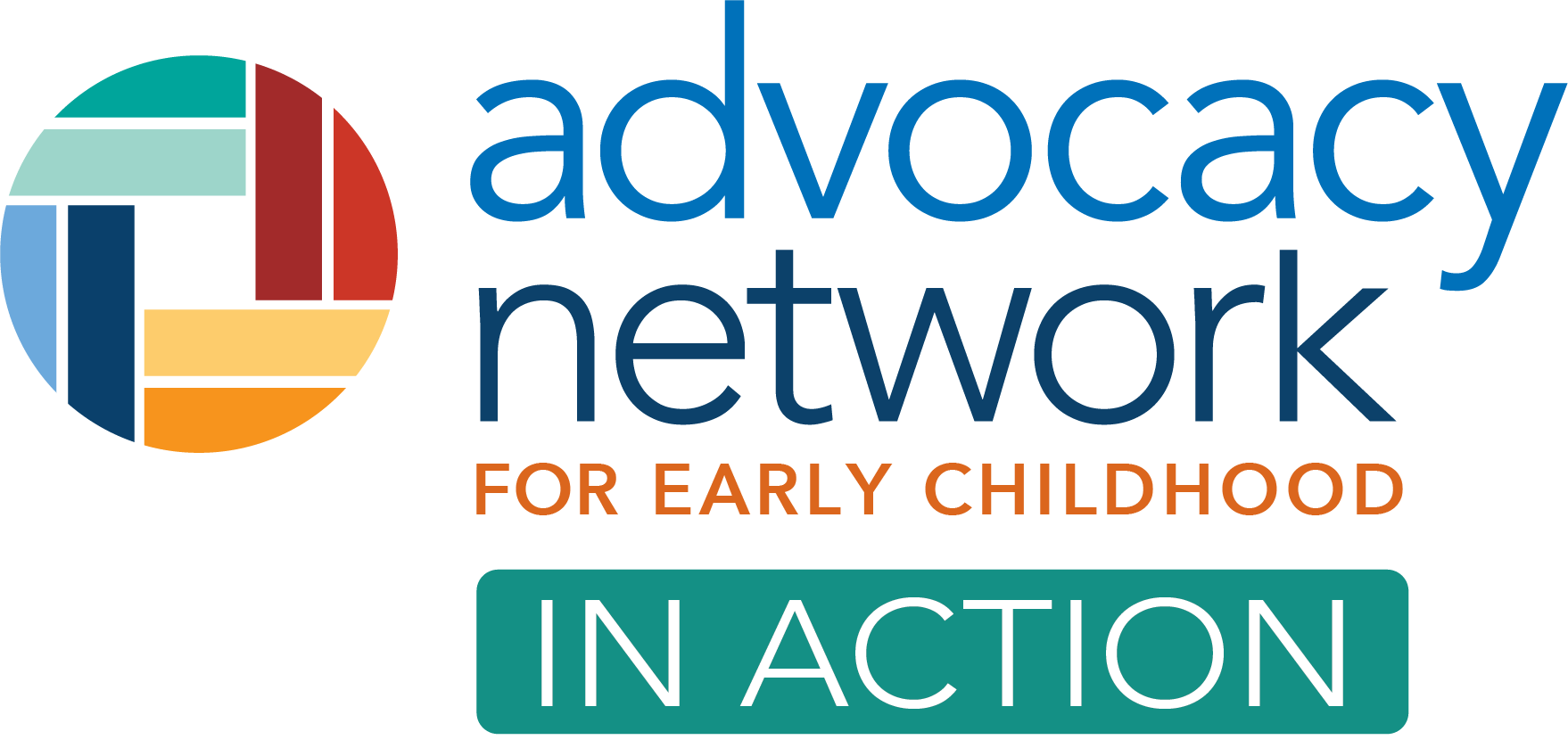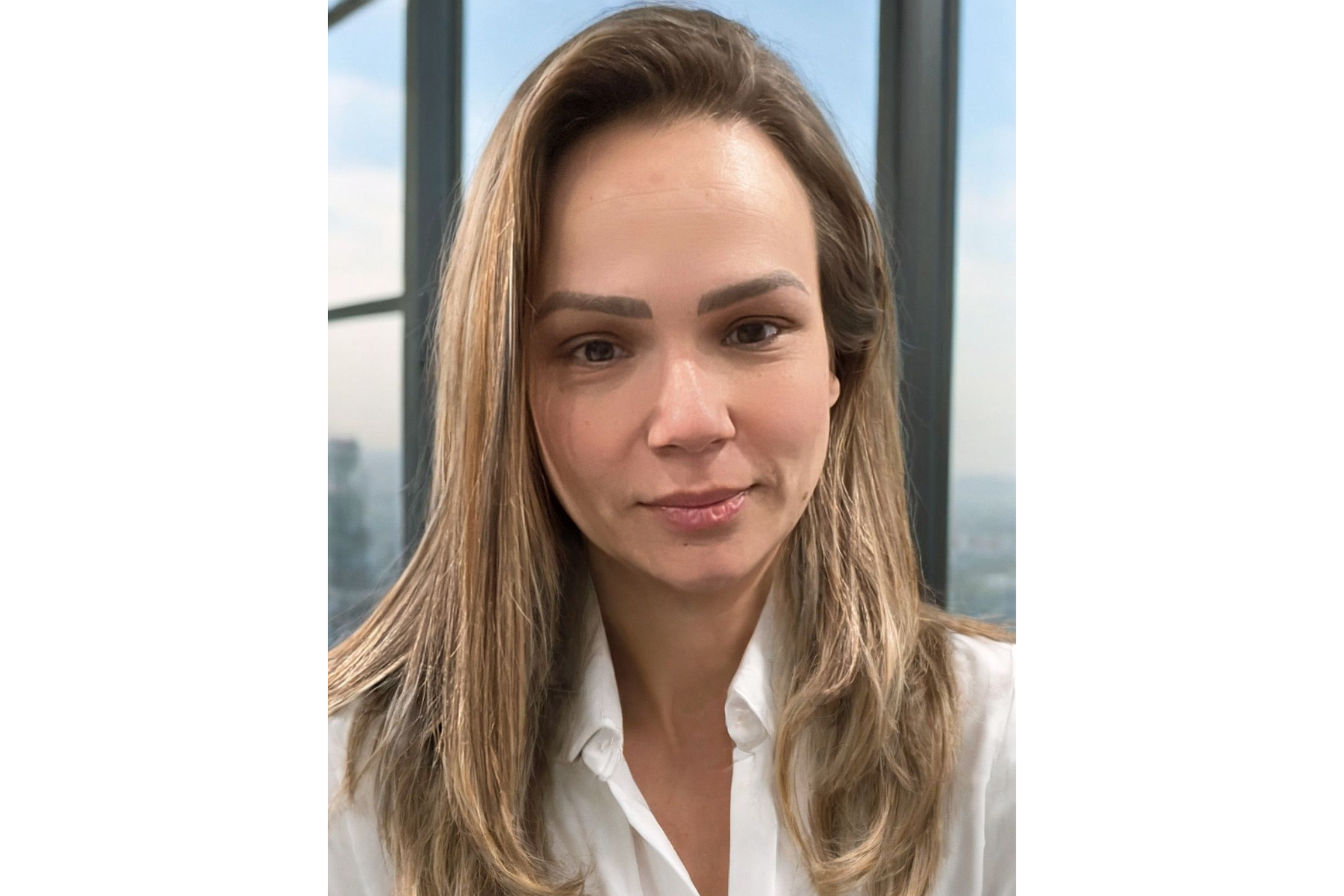Alannah Olivastro-Pagani is an optimist. And her upbeat perspective spills over into her career as an early educator. Everywhere she looks, she sees possibilities for growth and progress.
“I truly believe that Massachusetts has immense potential when it comes to educational policies and government initiatives. I see a real effort to create meaningful change in multiple areas, and that, to me, is fascinating,” she says.
“Of course, education is far from perfect, no system is. There is still so much to improve, and that’s exactly why we advocate” to push progress forward. But what stands out to me is the openness I see within the system, the willingness to listen and consider the perspectives of those working directly with children and educators.”
Olivastro-Pagani has a broad view of education. In college, in Brazil, she studied business. What was also appealing were classes in pedagogy.
“I saw my opportunity to do what I love to do, because I love working with kids, but I didn’t want to work solely in the classroom. I wanted to explore more areas in this field. With pedagogy I wondered, could I be a director? Could I have a center?”
In 2015, Olivastro-Pagani moved from Brazil to the United States. She combined her love of business and children by starting a family child care program, which also allowed her to take care of her own child.
“I wanted to deliver high-quality education built on meaningful connections,” she says. “That’s what drove me to seek out professional development opportunities, study the regulations, and pursue certifications.”
“Eighty percent of the children in my program receive government subsidies. I mention this because they are the reason I do this work. My advocacy is directly tied to them, their experiences, their emotional well-being, and the support we, as educators, can provide.
“These children deserve more than just academic instruction; they need an environment that acknowledges their realities, nurtures their growth, and empowers them to thrive. My mission is to ensure that every child in my care has the foundation they need to move forward with confidence.”
Thanks to the fact that she had shared her professional background and expertise on LinkedIn, Olivastro-Pagani was approached by the Director of Training and Workforce Development at The Community Group (TCG), a nonprofit early education program in Lawrence, Mass. The director encouraged her to apply for a position that required a highly qualified educator to support Portuguese-speaking providers.
Today, Olivastro-Pagani still owns her family child care program. She also works at TCG as a Coach and Facilitator for the Northeast MA Professional Development Center, sponsored by StrongStart, the Department of Early Education and Care’s (EEC) professional development program, and UMass Boston’s Early Education Leaders Institute.
In addition, Olivastro-Pagani is currently a member of the fourth cohort of Strategies for Children’s Advocacy Network. As an advocate, she is focused on children and on early educators.
“I see this as a crucial moment to elevate the dialogue within EEC, reinforcing the importance of educator well-being as a key factor in educational quality. When educators receive the support they need, they can build stronger connections with children, creating truly impactful learning experiences.”
For her Advocacy Network project, Olivastro-Pagani is developing a course “based on the three fundamental pillars I believe are essential for child development: the child, the educator, and the connection between them. This framework ensures that learning is not just about behavior management, but about fostering meaningful relationships and emotional well-being.”
The project aligns with an EEC training program that Olivastro-Pagani is taking on educator well-being and childhood trauma.
“This reinforces a critical shift in focus: it’s no longer just about the child’s behavior” it’s about the educator’s emotions, their well-being, and the support systems institutions need to provide so educators can emotionally thrive,” she explains.
“When educators are well-supported, they can fully engage with the children and effectively use the strategies that research has provided. This is the kind of transformation we need in education: one that prioritizes not only what we teach children, but how we support the adults guiding them.”
Olivastro-Pagani also has a personal, longer-term project. She is designing an early education program for underserved children who need emotional and developmental support, a program that will also double as a research center.
“One of my key objectives is to provide quantifiable evidence of something we already know intuitively: children who receive strong emotional support from educators show greater academic progress, from early childhood through adulthood. Since education is often seen as a qualitative field rather than a quantitative one, this research component will help bridge that gap, using data to validate the impact of emotional well-being on long-term academic and personal success.”
Ask Olivastro-Pagani where she hopes early childhood programs will be in the future, and her compelling optimism shines even more.
“Looking ahead to the next 10 years, I truly believe that things will only continue to improve. One of the key reasons for this is the ongoing efforts by EEC to foster the inclusion of family child care professionals while also ensuring they have the right to professionalize their careers.
“When we see new professionals entering the field with access to structured education, training, and certification, we are no longer just filling positions, we are building a highly qualified workforce. And when that happens, success is inevitable.”




